
Ten Unusual English Words in Common Use in Scotland
I’ve been traveling around Scotland, pet sitting various dogs and cats, for nearly two months so far. I knew before I arrived, from many prior experiences, that Scottish speakers’ English can be difficult to understand for us Americans (as well as other English speakers) due to Scots’ particular & strong pronunciation and their use of some quite different English words and expressions.
So even though Scotland is an English-speaking country, I had wondered if I’d be able to communicate with local Scots easily or not. To my great surprise, then, I’ve found that I can mostly understand what everyone is saying! Hurrah!
But I have come across a few people with extremely strong accents whose speech literally sounded just like gibberish to me. Two cases in particular come to mind. One was an unexpected delivery man in Edinburgh who announced over the apartment buzzer, “amzn”… which turned out to be an Amazon delivery.
The other was a cackling woman in a public bathroom stall next to me. I had absolutely no idea what she was gibbering about. I certainly would not have guessed it was even English.
On the whole, though, I’ve had very little trouble communicating with the locals, much to my relief.
But when it comes to written English in Scotland, I’ve come across many words that are completely new and unknown to me. Often to the extent that it seems I’m trying to understand a completely different language, as if I were in Spain or France or Indonesia. I’ve seen these words on signs, menus, buildings and other places throughout the country.
So I’ve kept a list of words I’ve come across. I decided to write this article detailing some of the most common Scottish-English words that seem to be a part of everyday English here in Scotland.
I did a bit of research on each word’s origins, history and meaning. The first thing I discovered is that they all are, in fact, English words! Some derive from Old English or Middle English, while others originally derived from French, Old Norse, Greek, Gaellic or other old languages. But each word was eventually absorbed into the English language long, long ago and is an official English word, much to my surprise.
Following are some of the most common words I’ve encountered in my travels around Scotland, along with their meaning and origin. Hopefully you’ll find this as interesting as I do…

Kirk = Church
‘kirk’ is thought to be derived from Old Norse in the Middle Ages of the 1200s, meaning ‘Lord’s House’. But ‘kirk’ has also been used historically in Danish, Norse, Scottish, Scottish Gaelic and Middle English.
Canon = Priest
‘canon’ is of Greek origin, meaning ‘rule’ ‘set of rules’ ‘standard’. It’s found in English as far back as the 900s AD. A Canon is generally a secular clergyman connected to a particular church or cathedral.

Loch = Lake, Sea Inlet, Fjord
‘loch’ originated from Scottish Gaellic and/or Irish Gaellic and was later adopted into English. Lakes and sea inlets are called ‘lochs’ only in Scotland and Ireland.
Loch is an extremely common word in Scotland. It’s all over Scottish maps, tourist itineraries and iconic destinations, such as Loch Ness.
I found this term a bit confusing at first because in other English speaking countries, there’s a huge difference between a lake (fresh water) and a sea inlet (salt water). But in Scotland, the same word – loch – is used for any large body of water, whether its fresh water, sea water, landlocked or connected to the ocean.

Close = Narrow alley
‘close’ derives from Middle English. In Scotland, it usually refers to a very narrow alleyway running between two buildings or houses. It may be on private land, with gates at each end so that it can be blocked off from public use.
‘close’ is also just the generally Scottish English word for ‘alley’. It could also mean ‘dead end’.
Wynd = Narrow alley
‘wynd’ is derived from Old Norse, meaning ‘to turn’ (off the main road). In English, ‘wynd’ is another term for a narrow passageway between two buildings or houses. Technically, it differs from a ‘close’ because it cannot be closed at the ends. A wynd is an open, public use alley.

Tartan = Plaid of a specific type of pattern
‘tartan’ may have derived from Old French, but it’s been used in Scottish Gaellic and English for many centuries. Tartans have been woven in Scotland at least since the 200s AD.
Simply put, ‘tartan’ is the Scottish English word for ‘plaid’. However, tartan is actually a specific type of plaid, used in Scotland mainly for kilts, caps, blankets, drapes and other fabrics.

Haar = Fog
‘haar’ derived from Old Dutch, meaning ‘a sharp strong wind’. Today ‘haar’ is a British English word for ‘fog’. But a haar is a specific type of sea fog found only along the eastern coasts of Scotland and Northern England. It rolls in off the frigid North Sea.
I was caught in a haar while walking on the beach in Nairn, a small town located on Scotland’s northern coast. More specifically, Nairn is situated on the shores of huge Moray Firth (Bay), which empties into the North Sea.
The haar I encountered looked kind of like a fog, but instead of a steady thick blanket of white, the haar came in delicate white puffs that whisked inland across the beach. It was definitely different from any other fog or cloud that I’d ever walked in.
Sugar Loaf = a conical mound of compacted granulated sugar
Until the late 1800s, the sugarloaf was the main way that granulated sugar was processed and sold. Sugarloafs were used in Jordan as far back as the 12th century and all over Europe in the 1400-1500s.
The term ‘sugarloaf’ has also come to mean that particular tall conical form, such as a sugarloaf hat or famous Sugarloaf Mountain down in Rio de Janeiro, Brazil.
In Scotland I came across the term sugarloaf in the historic district of Edinburgh, where there are many terms referring to historic trades and products of the town.

Bourgh = Fortified town
‘bourgh’ derived from Old English. But the same word, different spellings, is used in Scandinavian countries and German.
One example is Edinburgh, which was established on top of a tall rocky point as a small walled town. Today it’s called Edinburgh Castle, which stands above the rest of the city as its main iconic landmark.
Tenement = Apartment building
‘tenement’ was used in Medieval Latin, Old French and Middle English (1150-1500s). In Scotland today, ‘tenement’ simply translates as ‘apartment building’.
Port = Gate
‘port’ as used in English to mean ‘gate’ was derived from Old French, meaning ‘door’ ‘gate’ or ‘passage gate’. It was absorbed into Old English and is still used in Scotland with this meaning. Of course, ‘port’ is also used to mean a ship harbor.

Summary
The English language is extremely diverse and varied around the globe. Each English-speaking country and culture has its particular pronunciations, words, phrases and sayings that make it different from other English-speaking countries.
Scottish English can be one of the hardest for English speakers from other countries to understand. In this article I’ve explained some of the unusual English words that I’ve come across regularly in Scotland, most of which I’d never heard of before.
I hope you’ve found this article interesting and, perhaps, eye opening.
=======================================
In the meantime, you might also enjoy:
9 Quintessential Scottish Traditions
My First Observations of Edinburgh
20 Famous People from Scotland
========================================

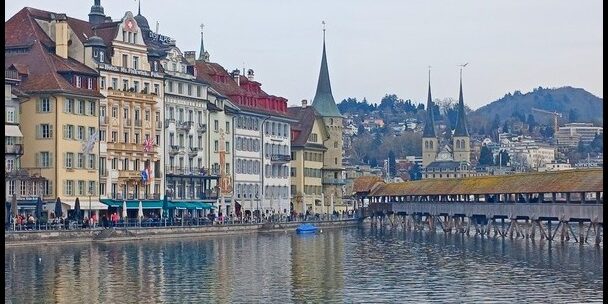
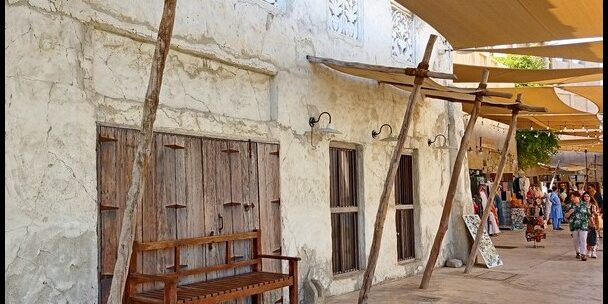
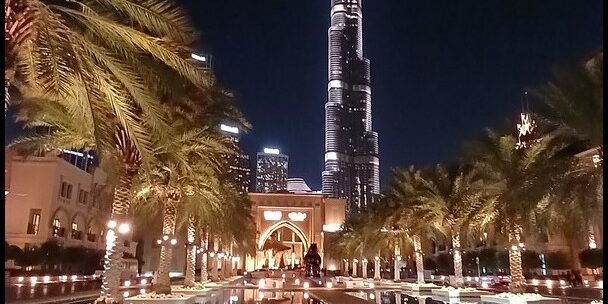

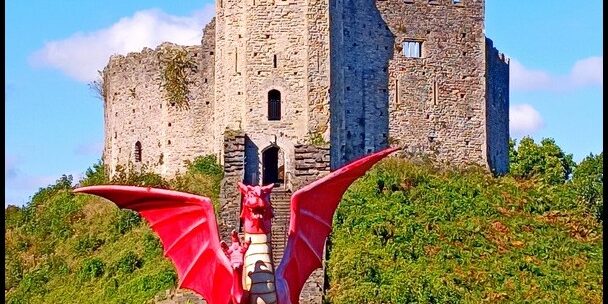




 Hi! I'm Lash, an American nomadic world traveler who's been traveling solo since 1998. I’m passionate about traveling the world nomadically and then sharing it all with you. I hope to inspire you to travel the world, to entertain you with tales from the road, and to help you reach your travel dreams. Welcome!
Hi! I'm Lash, an American nomadic world traveler who's been traveling solo since 1998. I’m passionate about traveling the world nomadically and then sharing it all with you. I hope to inspire you to travel the world, to entertain you with tales from the road, and to help you reach your travel dreams. Welcome! 


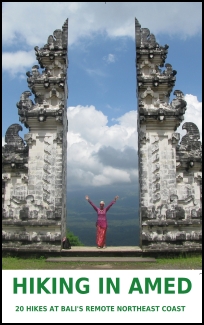

1 pings
15 Surprising Facts about Wales - LashWorldTour
2024/12/17 at 11:09 pm (UTC 8) Link to this comment
[…] Ten Unusual English Words in Common Use in Scotland […]